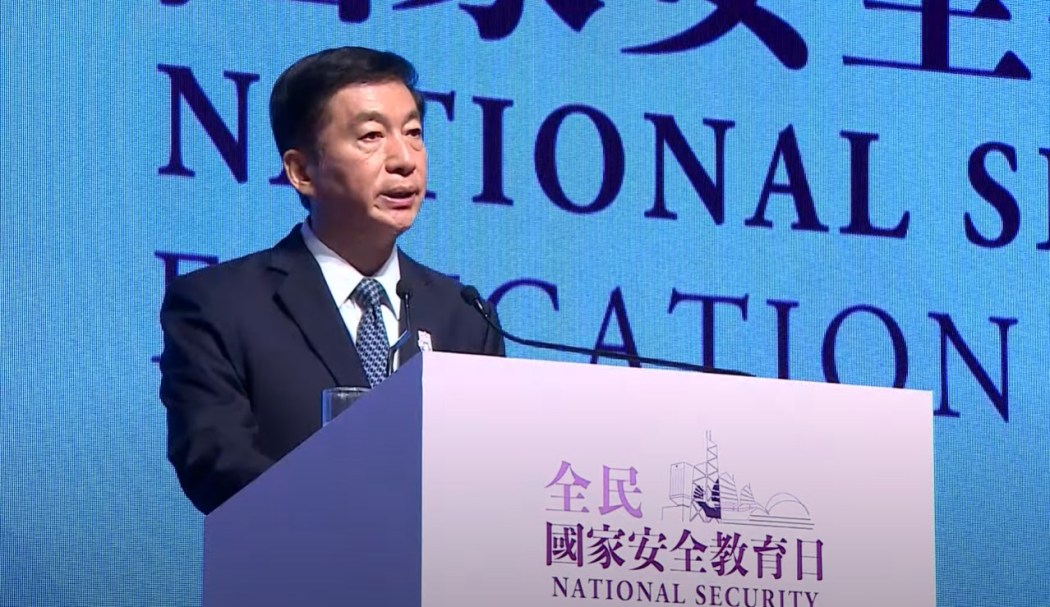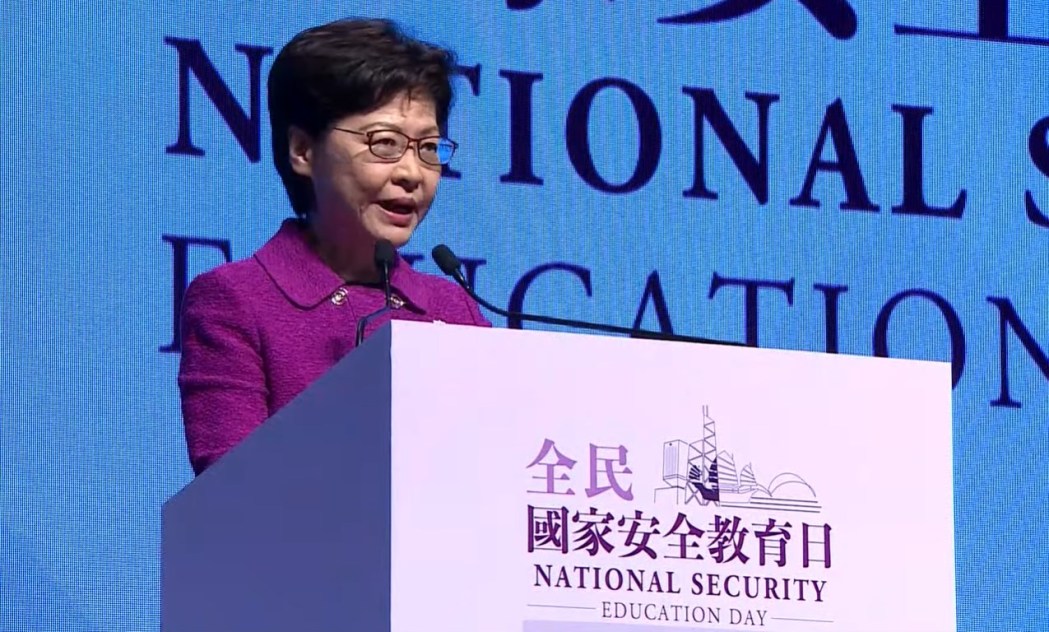China will “teach a lesson” to “foreign forces attempting to use Hong Kong as a pawn,” Beijing’s top local official said on Thursday at a ceremony to mark the city’s first National Security Education Day.
Liaison Office Director Luo Huining gave no details but said Beijing has always been “true to its word and resolute in its deeds” in ensuring national security.

“Now that we have a law, a mechanism, and a team, the implementation is ever more important,” said Luo. “For all who endanger national security, hard resistance should be stricken down by law, soft resistance should be regulated by law.”
More than 100 people have been arrested since Beijing in June last year imposed a national security law on Hong Kong, mandating punishments of up to life imprisonment. The Chinese and Hong Kong governments say foreign forces conspired to encourage the months-long anti-government protests in 2019, a claim denied by pan-democrats.
Some western nations have imposed sanctions on mainland and Hong Kong officials in response to the security legislation and a sweeping political overhaul designed to ensure only “patriots” rule Hong Kong.
In a rare public appearance at the ceremony, Director of the Office for Safeguarding National Security in Hong Kong Zheng Yanxiong thanked the legal sector for its support: “I have to especially thank the friends in the legal sector who resolutely supported the implementation of the national security law,” said Zheng.
“Judges, prosecutors, lawyers, and scholars, they all made professional contributions by speaking justly and acting proactively in legal events, with the moral recognition of national security, a serious attitude towards the rule of law, and legal responsibility towards social order.”
Zheng, who was appointed director in July last year, was known for a hardline approach that stamped out anti-corruption protests in Wukan, a village in Guangdong province, in 2011.
Zheng also described the Hong Kong administration, especially the disciplined services, as the city’s “guardian angels” in maintaining national security and prosperity.
Legislative efforts ‘demonised’
In her opening speech, Chief Executive Carrie Lam said national security and regime security were inseparable. “To genuinely secure national security, the right to rule must be tightly gripped in the hands of patriots.”

Lam said legislative efforts to maintain national security had been “demonised by individuals with ulterior motives” since the 1997 handover, making Hong Kong a gap in China’s national security.
Meanwhile, Most of Hong Kong’s newspapers carried front-page government advertisements promoting Thursday’s National Security Education Day, with the exception of the pro-democracy Apple Daily.

The sometimes-violent protests which gripped the city for months in 2019 and early 2020 have subsided since the start of the Covid pandemic and the passing of the National Security Law. Meetings of more than four people are still banned under pandemic regulations.

But the League of Social Democrats and the Alliance in Support of Patriotic Democratic Movements in China staged a four-person protest in Wan Chai demanding full democracy. They also called for political prisoners to be released and for human rights to be respected.
Support HKFP | Policies & Ethics | Error/typo? | Contact Us | Newsletter | Transparency & Annual Report | Apps
Help safeguard press freedom & keep HKFP free for all readers by supporting our team
























